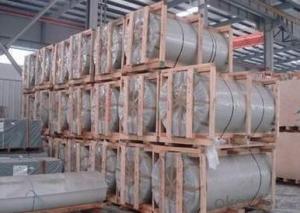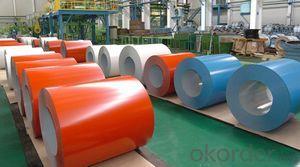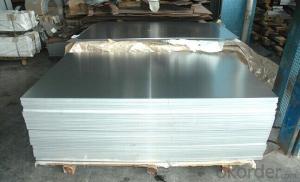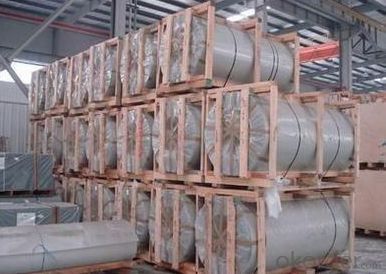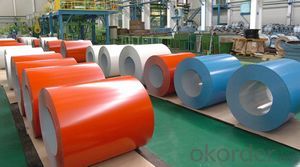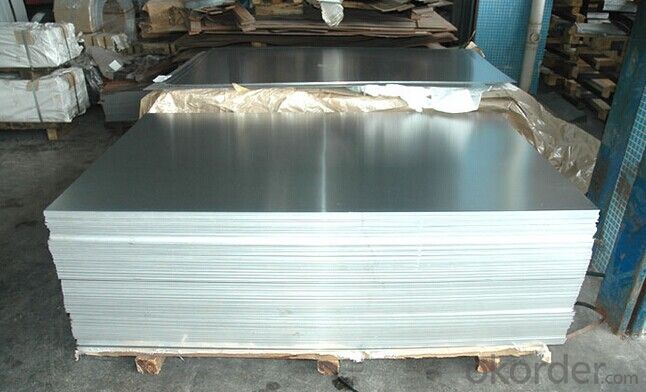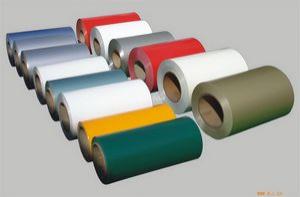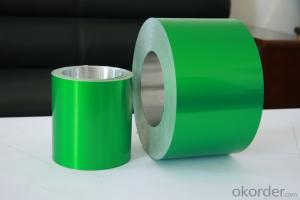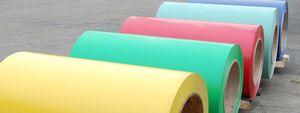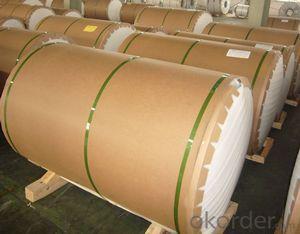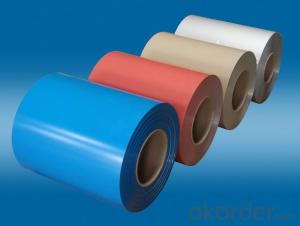Customized AA 1050 Coated Aluminum Coil
- Loading Port:
- China Main Port
- Payment Terms:
- TT OR LC
- Min Order Qty:
- -
- Supply Capability:
- -
OKorder Service Pledge
Quality Product, Order Online Tracking, Timely Delivery
OKorder Financial Service
Credit Rating, Credit Services, Credit Purchasing
You Might Also Like
supply Mill-finished / coated aluminum plate/sheet/ coil:
Alloy: AA1050,1060,1100,1200,2024,3003,3304,3005,3015,5052,5086,5754,5083,6061,7050,7475,8011, etc
Temper: O, H14/16/18/22/24/32/ H112/H321/T6,T851,T7451,T7351, etc
Thickness: 0.02mm—20mm
Width: 100mm—2000mm (Can be slitted)
Notice: PE coating / PVDF coating / Embossment can be done if required.
- Q: In my line of work I see aluminum ground lugs, bonding nuts and straps and also neutral bars eat copper up, especially when exposed to the elements. I know how galvanic reaction works between elements under current load, but my question is why do aluminum and copper seem to hate each other more than any other? And, why would they still be required in usage together per NEC code?
- that's a single alternative reaction. The aluminum and the copper swap places, yielding copper and aluminum sulfate. Please notice: the 1st answer describes a chemical equation with nitrate, no longer sulfate. otherwise, this is the perfect format.
- Q: This question asks for a comparison of various types of equipment used for welding aluminum coils, highlighting their distinct features and applications.
- <p>Aluminum coil welding equipment varies based on technology, power source, and application. TIG (Tungsten Inert Gas) welders are known for high-quality welds and are ideal for thin aluminum coils. MIG (Metal Inert Gas) welders are versatile and suitable for thicker coils, offering faster welding speeds. Stick welders are more portable and cost-effective but produce lower quality welds. Laser welders provide precise, deep penetration welds suitable for high-precision applications. Friction stir welding is a solid-state process that offers excellent joint properties without melting the metal. Each type has its advantages and is chosen based on the specific requirements of the welding task, such as material thickness, weld quality, and production rate.</p>
- Q: Is it appropriate to use a wire brush for cleaning an aluminum coil?
- <p>Using a wire brush to clean an aluminum coil is not recommended. Wire brushes can cause scratches and damage the surface of the aluminum, which can lead to corrosion over time. Instead, use a soft cloth or sponge with a mild cleaning solution to gently clean the coil. This will prevent any damage to the aluminum while effectively removing dirt and debris.</p>
- Q: Can aluminum coils be used in heat exchanger fins?
- Yes, aluminum coils can be used in heat exchanger fins. Aluminum is a common material choice for heat exchangers due to its excellent thermal conductivity and corrosion resistance. Aluminum coils can efficiently transfer heat and withstand high temperatures, making them suitable for use in heat exchanger fins.
- Q: We are shopping for a new LQ trailer. We are looking at several different brands and noticed that some have aluminum skin on an aluminum frame, and others have aluminum skin on a steel frame. Other than the obvious differences in weight and cost, what are other benefits/disadvantages of each? Thanks
- I swear by an all aluminum trailer! Aluminum over steel next, and I hope I never own another steel trailer! I have had trailers for, lets see, 40 years now, and just bought my first aluminum one about 6 years ago. It is 14 years old and except for a few bumps that WE put in it (the same amount of bump would have dented a steel trailer too) it is in GREAT shape. A 10+ year old steel trailer shows a LOT of wear, and has to be sanded and painted often.
- Q: What specific conditions or considerations need to be taken into account when utilizing aluminum coils in high-temperature settings?
- <p>When using aluminum coils in high-temperature environments, it's crucial to consider the material's melting point, which is around 660掳C (1220掳F). Ensure that the operating temperature does not exceed this threshold to avoid deformation or failure. Additionally, aluminum's strength and conductivity can be affected by high temperatures, so it's important to account for potential changes in performance. Protective coatings or treatments may be necessary to prevent oxidation and maintain the coil's integrity. Always consult material specifications and consult with material science experts to determine the suitability of aluminum coils for specific high-temperature applications.</p>
- Q: Are aluminum coils suitable for insulation jacketing?
- Yes, aluminum coils are suitable for insulation jacketing. Aluminum is a popular choice for jacketing material due to its excellent thermal properties, durability, and corrosion resistance. It is widely used in various industries, including HVAC, oil and gas, and petrochemical, for insulating pipe systems and equipment. Aluminum coils provide a protective covering around insulation materials, preventing moisture ingress and maintaining thermal efficiency. Additionally, their lightweight nature makes them easy to install and transport. Overall, aluminum coils are a reliable and effective solution for insulation jacketing applications.
- Q: Are aluminum coils susceptible to warping or bending?
- Yes, aluminum coils are susceptible to warping or bending due to their relatively low strength and flexibility.
- Q: Can aluminum coils be used in coil coating processes?
- Yes, aluminum coils can be used in coil coating processes. Coil coating is a continuous and automated process that involves applying a protective or decorative coating to a coil of metal, typically steel or aluminum. Aluminum coils are commonly used in this process due to their excellent corrosion resistance, lightweight nature, and ease of forming. The aluminum coils undergo various pre-treatment processes like cleaning, chemical treatment, and primer application before the actual coating is applied. These coils are then coated with a wide range of materials, including paints, lacquers, and polymers, to enhance their appearance, durability, and performance. The coil coating process allows for efficient and consistent coating application, making it an ideal choice for various industries such as construction, transportation, and appliances.
- Q: How are aluminum coils used in the production of marine vessels?
- Aluminum coils are extensively used in the production of marine vessels due to their unique properties and advantages. Firstly, aluminum is a lightweight material compared to other metals commonly used in shipbuilding such as steel. This characteristic makes it ideal for constructing marine vessels as it reduces the overall weight of the ship, allowing it to float more easily in water. The use of aluminum coils in the construction process ensures that the vessel remains buoyant without compromising its structural integrity. Secondly, aluminum is highly corrosion-resistant, especially when exposed to saltwater environments. Marine vessels are constantly exposed to water, which can be corrosive and damaging to metal components. By using aluminum coils, shipbuilders can minimize the risk of corrosion and increase the longevity of the vessel. Moreover, aluminum coils offer excellent thermal conductivity. This property is crucial in marine vessels as it helps dissipate heat generated by engines, machinery, and equipment, ensuring that the ship operates efficiently and safely. Additionally, aluminum coils can be easily formed, shaped, and welded, making them highly malleable and adaptable for various shipbuilding requirements. This flexibility allows shipbuilders to create complex and streamlined designs, optimizing the vessel's performance and fuel efficiency. Furthermore, aluminum coils are environmentally friendly as they are 100% recyclable, reducing the carbon footprint associated with marine vessel production. This aspect aligns with the growing demand for sustainable and eco-friendly shipbuilding practices. In conclusion, aluminum coils play a vital role in the production of marine vessels. Their lightweight nature, corrosion resistance, thermal conductivity, malleability, and recyclability make them an ideal choice for shipbuilders. By utilizing aluminum coils, marine vessels can be constructed to be more efficient, durable, and environmentally friendly.
Send your message to us
Customized AA 1050 Coated Aluminum Coil
- Loading Port:
- China Main Port
- Payment Terms:
- TT OR LC
- Min Order Qty:
- -
- Supply Capability:
- -
OKorder Service Pledge
Quality Product, Order Online Tracking, Timely Delivery
OKorder Financial Service
Credit Rating, Credit Services, Credit Purchasing
Similar products
Hot products
Hot Searches
Related keywords
